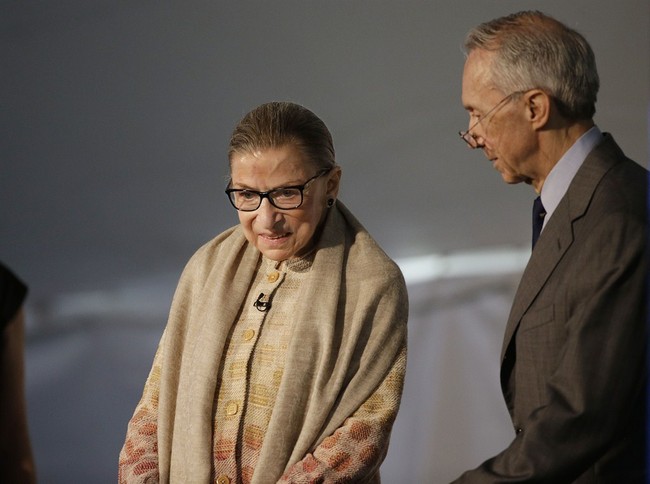
Retired Supreme Court Justice David Souter passed away Thursday at 85. Souter “died peacefully yesterday at home in New Hampshire,” the Supreme Court revealed in a press release posted Friday morning.
“Justice David Souter served our Court with great distinction for nearly twenty years,” Chief Justice John G. Roberts said in a statement. “He brought uncommon wisdom and kindness to a lifetime of public service. After retiring to his beloved New Hampshire in 2009, he continued to render significant service to our branch by sitting regularly on the Court of Appeals for the First Circuit for more than a decade. He will be greatly missed.”
Souter was born on September 17, 1939, in Melrose, Massachusetts. A Harvard graduate and Rhodes Scholar, he earned degrees from both Harvard and Oxford before beginning his legal career. He served as New Hampshire’s attorney general and held judicial positions on the state’s Superior and Supreme Courts before being appointed to the U.S. Court of Appeals for the First Circuit in 1990.
Souter was appointed to the Supreme Court by President George H.W. Bush in 1990 and served for over 19 years before retiring in 2009. His judicial philosophy ultimately disappointed many conservatives, and his legacy serves as a cautionary tale for Republican presidents about the long-term impact of Supreme Court appointments. He backed affirmative action during his confirmation hearings, surprising many conservatives. It served as a warning as to the type of justice he would be.
He regularly voted with the liberal justices on hot-button issues like abortion, affirmative action, and prayer in schools. His vote in Planned Parenthood v. Casey helped preserve Roe v. Wade, much to the dismay of pro-life advocates who had hoped his appointment would help overturn the controversial decision.
His most controversial opinion came in 1992, jointly authored by Justices Sandra Day O’Connor and Anthony Kennedy, reaffirming the right to abortion under Roe v. Wade and creating an “undue burden” standard for judging state restrictions on the procedure.
“To overrule under fire, in the absence of the most compelling reason to re-examine a watershed decision, would subvert the Court’s legitimacy beyond any serious question,” the three justices wrote in Planned Parenthood v. Casey.
Souter’s defenders have long denied he was a secret liberal, emphasizing his respect for precedent and the philosophy of “originalism,” which emphasizes the historical meaning behind constitutional clauses and federal laws.
“The original meaning of conservatism was reluctance to embrace radical change,” Ernest Young, a former clerk of Souter’s and Duke law professor, told ABC News in 2009.
Souter, who was Episcopalian, was also known for advocating strict government neutrality in matters of religion and consistently opposing religious displays in public spaces.
Souter also aligned with the Court’s left wing in Bush v. Gore—a decision that reportedly left him so upset he considered resigning. In 2005, he joined a controversial ruling expanding government power to seize private property, sparking backlash and even a failed effort to seize his own home in protest. He retired in 2009, and President Barack Obama nominated Sonia Sotomayor to succeed him.












